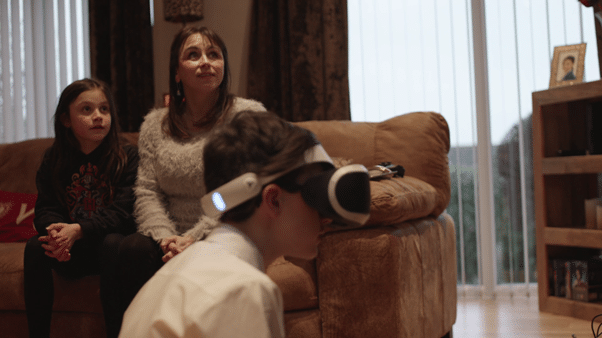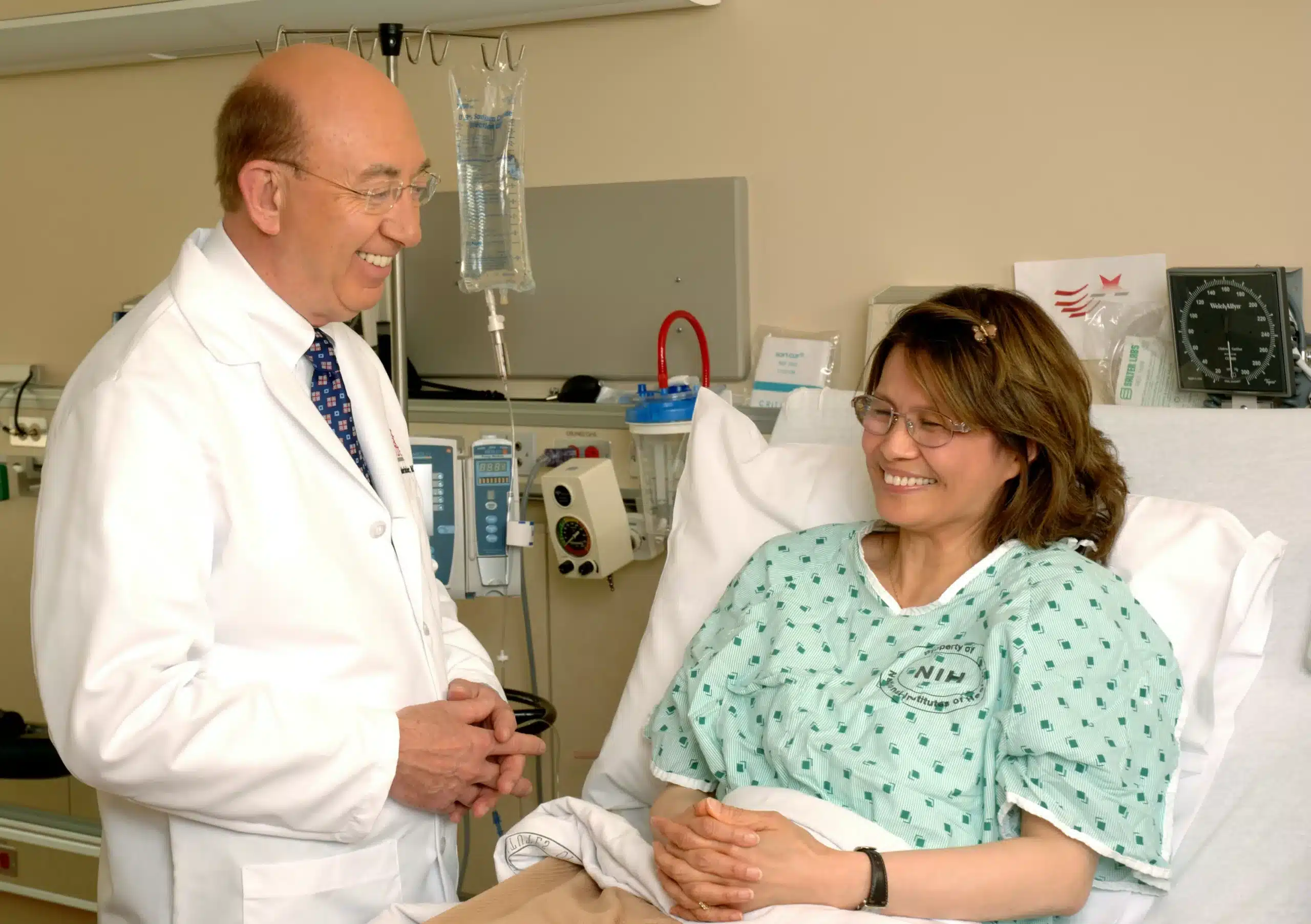
 " alt="">
" alt="">

Reviewed by
Peter Rigby - Director of Medical Negligence
We've got your Cervical Cancer Claim covered
- No win No fee
- Not just lawyers - real specialists
- No obligation
- UK's highest-rated medical negligence solicitors
In the UK, 99.8% of cervical cancer cases are preventable, so when a medical error is made that worsens your condition, we understand that the consequences can be tragic for you and your loved ones.
If you have suffered due to medical negligence we understand that this can be a stressful time, which is why we are committed to securing compensation that can contribute towards your recovery and any damage caused.
Find out if you
have a claim
Take the 10-second claim test
Free Advice
03300 080 352
claim form
We're the highest-rated No Win No Fee medical negligence solicitors on Trustpilot
Cervical Cancer and Medical Negligence
Generally, NHS and private clinicians do incredible jobs in difficult circumstances when it comes to cervical cancer. Unfortunately, medical mistakes can happen and can leave patients and their families devastated. Medical professionals can sometimes fail to recognise symptoms, or may misdiagnose the cancer for a less severe illness.
At Patient Claim Line, we have supported women and families who have suffered at the hands of medical mistakes. Some of the cases that we have represented include:
- Screening Negligence
- Invasive treatments or treatments more intense than what you should have been offered, such as unnecessary hysterectomies
- Misdiagnosis of cervical cancer
- Incorrect storage of test samples, leading to false negatives
- Incorrect staging of cancer
- Failure to recognise the symptoms of cervical cancer
Cervical cancer screenings, commonly known as a smear test, are a way for health professionals to prevent the development of cancer by checking the health of the cervix and looking for signs of potential risk. Screenings are offered to those with a cervix and aged between 25 and 64. It is vital at this stage that your medical professional interprets the results accurately to prevent any delays in treatment early on.
Cervical cancer misdiagnosis can occur when a medical professional incorrectly diagnoses symptoms as conditions such as menopause and heavy periods causing patients to undergo incorrect treatments which can worsen a patients condition, allowing the cancer time to grow and spread.
The consequences of a misdiagnosis or negligent treatment can be dangerous and often extremely difficult for those affected to deal with. Some women may find that their fertility has been tragically impacted due to delayed treatment and sadly, the cancer can sometimes become terminal.
It is crucial that medical professionals get it right, but if they haven’t you could claim for the grievances that you have suffered.
Cervical Cancer And Negligent Treatment
Treatment for cervical cancer can vary dependent on factors such as:
- Location of the cancer in the cervix
- Cervix size
- If the cervical cancer has spread anywhere else in the body
- Your overall health
For most individuals, treatment is a combination of surgery, chemotherapy and radiotherapy (chemoradiotherapy). In order for the treatment to be successful, patients must be made aware of all treatment or surgical options including the potential side effects and outcomes. Patients should also receive follow-up procedures.
Without the correct communication of treatment, cervical cancer patients can be left with life-changing side effects as treatment can result in the individual developing fertility problems. If this is something you were not made to be aware of, we are here to listen to your experience and help you in any way that we can.
Patient Claim Line are here for your cervical cancer claim
Our specialist team of cervical cancer claim solicitors are here to guide you through this difficult time, we aim to approach your experience with sensitivity and will support you through the claims process, on a no win, no fee basis.
In order to have the best chance of receiving the compensation that you deserve, it is important to choose solicitors who you can trust to represent your case. We hold a Band 1 ranking with Chambers and Partners’ for our North West Clinical Negligence expertise, and our presence in medical negligence is also ranked with The Legal 500 so we have the right medical expertise to secure you the justice that you deserve.
We are people just like you and we understand just how devastating a diagnosis of cervical cancer can be. We also know how much a claim for cervical cancer negligence can impact you, from facing the day ahead to knowing who to trust and where you can turn.
For additional resources and advice, you’re welcome to visit our claim relating FAQs for further information and support.
Helpful resources for cervical cancer patients:
Links to cervical cancer care and support networks and charities:
Cancer Research Cervical Cancer Information
Macmillan Cervical Cancer Information and Support Page
Government Cervical Cancer Website
Cancer.org What Is Cervical Cancer
Support
If you or a loved one have been affected by an amputation caused by medical negligence, please don’t suffer in silence.
If you’re not quite ready to make a claim, we still recommend accessing support resources that can advise and point you in the right direction.
Why Choose Patient Claim Line for your <Cervical Cancer Claim?
Not just lawyers — medical negligence experts
Patient Claim Line was established in 2014 and consists of a team of medical lawyers specialising in cancer negligence and general medical negligence claims.
At Patient Claim Line we have more than 100 solicitors with a combined experience of over 400 years and they will work on your behalf to achieve the best result possible for you.
It’s not enough to use a solicitor who sometimes covers medical negligence. You need someone who knows this area through and through. That is what the solicitors here at Patient Claim Line do. They deal exclusively in this area of law and are experts in the field.
Frequently asked questions about Cervical Cancer Claims
Our expert legal team answer your questions about making a Cervical Cancer Claim
It is possible that in the early stages of cervical cancer, you may not experience any symptoms. However, common symptoms can include:
- Heavier Periods Than Usual.
- Unusual Vaginal Discharge.
- Vaginal bleeding between periods, after sex, or after the menopause.
Compensation for cervical cancer claims are based on numerous mitigating factors such as medical evidence, severity of injury, impact on your life in the short-term and the long-term . Compensation received will often cover and include the following:
- Loss Of Earnings Potential From Work.
- Adaptations To Your Home.
- Rehabilitation services to regain a quality of life.
- General damages (pain and suffering compensation).
Claims surrounding medical negligence should be made within three years from the ‘date of knowledge’ which refers to the date in which you realised that your condition had been misdiagnosed or worsened due to the negligence of medical professionals. For those who have lost a loved one due to cervical cancer as a result of medical negligence, claims should be made within three years of the date of their demise.
Whilst it is important to seek advice from medical negligence lawyers as soon as possible regarding your case, there are set time limits to note when making claims. Standard time limits require that your claim is made within three years from the date of knowledge, when the injury occurred or when you first reasonably became aware of your injury’s impact. There are exceptions to these limits however. For more information on these exceptions, please refer to our additional FAQs.
Meet our Cervical Cancer Team
Case Study
Sarah's Story
"Now we have peace of mind"
My husband, Nick, went back and forth to the doctors for a long time and tried everything the doctor recommended. But his illness got worse, to the point that he was in agony.
In the end we got so desperate that we asked for a referral. The doctor was reluctant, so we had to consult a private hospital. That’s when we found out there was a tumour. It took years from the onset of his illness to finally start cancer treatment.


He used to be a man with a lot to live for, but in the end he was in so much pain that he withdrew from the family. He became angry that nobody had helped him sooner, and the legal team were able to give him the validation that he was desperately seeking. The NHS confirmed if they had done more, Nick would still be alive today.





